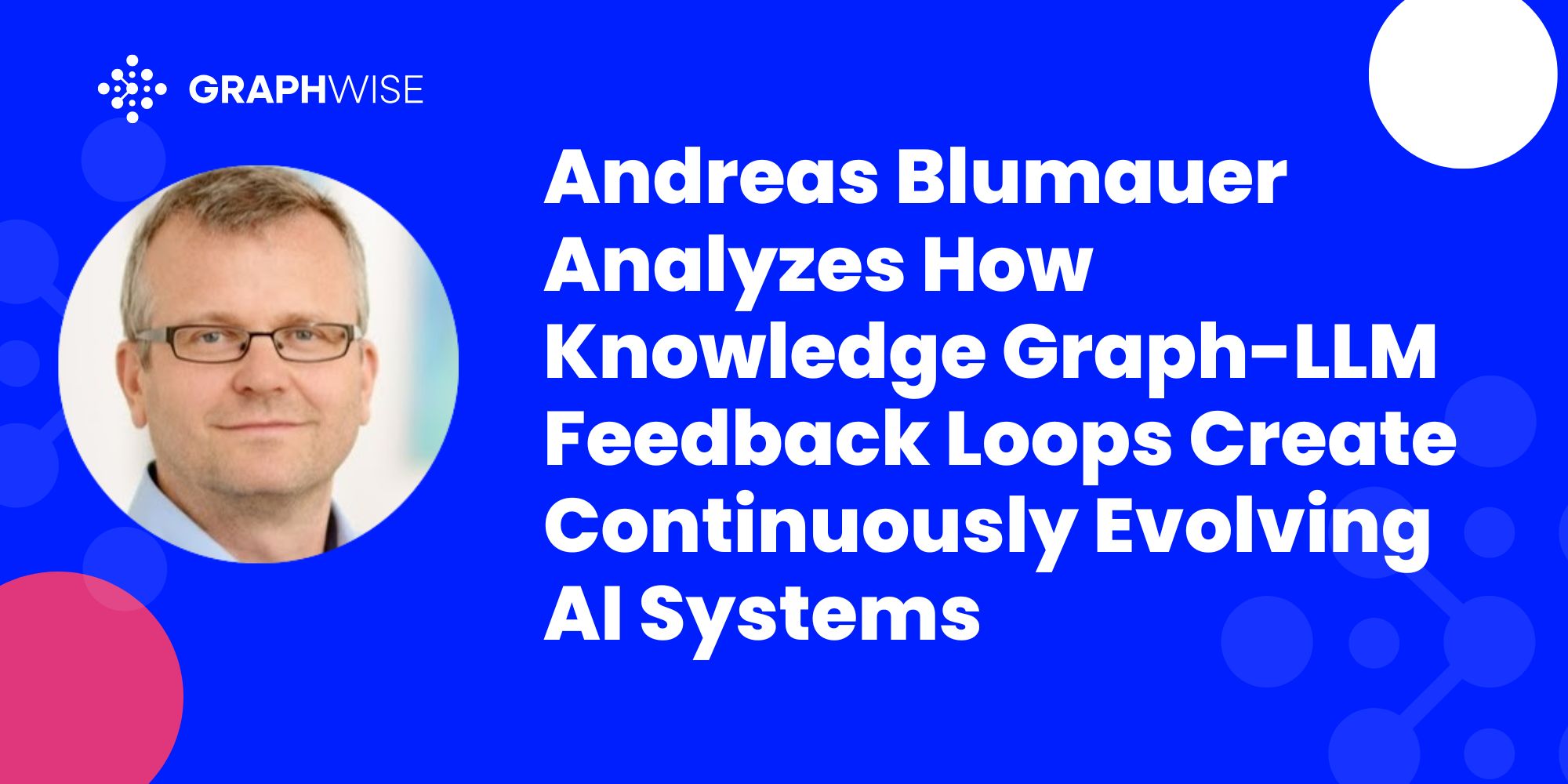In this article, How Knowledge Graphs Underpin Recursively Self-Improving AI, published in Analytics, Andreas Blumauer, SVP Growth and Marketing at Graphwise, argues that knowledge graphs have become strategically essential for organizations seeking to maximize the potential of large language models in the generative AI era. Knowledge graphs address critical LLM limitations such as inaccurate information generation and lack of contextual understanding by providing structured, semantic knowledge that enhances model fine-tuning and performance.
The integration creates a powerful feedback loop where LLMs fine-tuned on knowledge graphs become better at understanding complex data relationships. This in turn allows them to contribute back to and improve the knowledge graphs themselves, creating a cycle of recursive self-improvement. The iterative process enables AI systems to actively identify knowledge gaps, seek additional information, and potentially discover new relationships autonomously, moving toward truly emergent intelligence.
Andreas also emphasizes that human oversight remains crucial to ensure ethical guidance, validate improvements, and mitigate risks associated with increasingly autonomous AI systems. The convergence of these technologies represents a fundamental shift from static training approaches to dynamic, self-improving AI systems that offer organizations improved accuracy, reliability, and competitive advantage in their AI applications.
